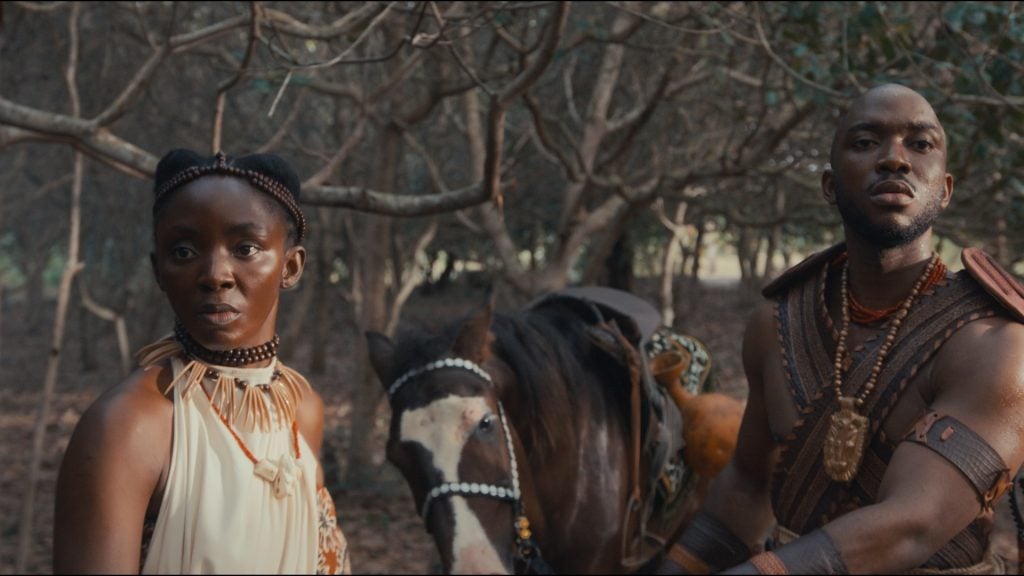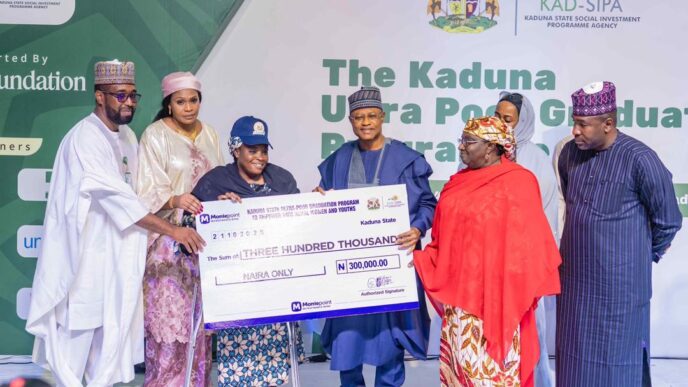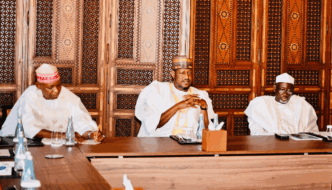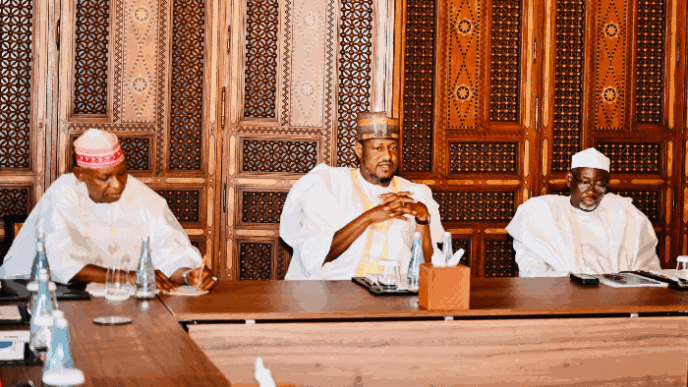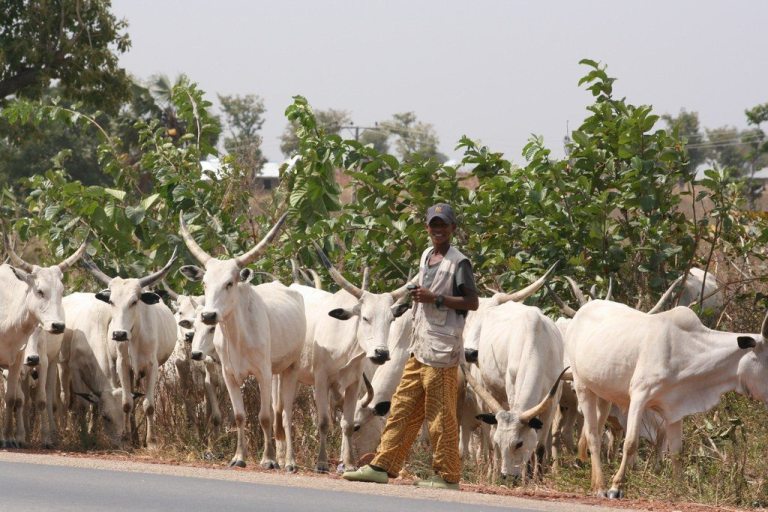BY LILIAN OLUBI
When the British forces invaded the Benin Kingdom in 1897, they looted bronze artifacts that told our story. But the real theft came after. The colonisers who controlled our land also controlled how the world saw us. For over a century, Africa’s narrative has been shaped by others, filtered through foreign lenses that reduced our complex civilisations to simplistic tales.
The consequences of that theft play out daily. I watch young Nigerians queue for the latest Marvel films while remaining largely ignorant of the sophisticated governance systems that once made the Benin Kingdom a regional superpower. We’ve been taught to see power in foreign mythologies while forgetting our ancestors left us something equally powerful.
This cultural disconnection demanded action. Last year, while continuing my work in finance and on the board of the Nigerian Exchange Limited, I chose to lead the financing of a film project that defied every conventional wisdom about what sells.
Advertisement
I decided to executive produce Osamede, an epic film drawn from documented Benin Kingdom history, shot predominantly in the Edo language, with extensive cultural consultation ensuring historical accuracy. The film secured investment from partners who believed in proving that authentic African stories could compete globally.
The Conventional Wisdom
The doubts were immediate and predictable. “Indigenous languages require subtitles that alienate audiences.” “Historical accuracy constrains creative freedom.” “Such cultural specificity would limit commercial appeal to niche academic audiences.” I heard these concerns from advisors, yes. But I also heard them in my own head during the sleepless nights when financial projections met cultural conviction.
Advertisement
Every film industry metric suggested they were right. The global entertainment industry generates over $2 trillion annually, yet African stories remain marginal players. When successful African narratives do emerge, like Black Panther’s $1.3 billion worldwide, they come from Hollywood studios that had to invent Wakanda because they assumed real African kingdoms weren’t compelling enough.
But sitting in boardrooms where I’ve watched millions flow toward safe, formulaic investments, I’ve learned that conventional wisdom often masks missed opportunities.
The Korean Model
The data that changed my mind came from Korean entertainment. Korea’s cultural content industry generates approximately $5 billion annually. This success stems from a strategic decision to refuse cultural dilution for Western palates. Korean films, music, and television succeed globally precisely because they maintain cultural specificity, not despite it.
Advertisement
If Korea, with a population of 51 million, could build a $5 billion cultural export industry by embracing rather than explaining its culture, what could Africa achieve? We have 54 countries, over 1.4 billion people, and a diaspora of 200 million people hungry for an authentic connection to their heritage.
The economic logic became clear: cultural authenticity doesn’t limit market appeal; it creates premium market positioning.
The Cost of Narrative Surrender
For decades, Africa has been content to consume rather than create cultural content. This narrative surrender carries measurable economic consequences. When others tell African stories, the financial benefits flow elsewhere. When our youth grow up seeing power only in foreign mythologies, we lose them to cultural alienation that no amount of economic development can repair.
Nigerian cinema didn’t wait for international permission to exist. When Hollywood ignored us, we created Nollywood with handheld cameras and determination. Today, it produces more films annually than Hollywood and generates billions in revenue.
Advertisement
But success bred compromise. Market pressures drove many productions toward formulaic storytelling. The global success of films like The Woman King forced an uncomfortable question: why weren’t African filmmakers creating these narratives ourselves?
The answer wasn’t a lack of talent. The gap was cultural confidence: the belief that our authentic stories, told in our languages and rooted in our historical complexities, could compete on global stages.
Advertisement
Testing the Hypothesis
This is where my finance background proved helpful. I’ve spent decades analysing the balance between risk and reward. The film industry’s assumption that cultural specificity limits commercial appeal had never been tested adequately with African content backed by serious investment and professional execution.
Advertisement
So we structured Osamede as both a creative project and a market experiment. The production integrated cultural consultants throughout development as core creative partners. We prioritised historical accuracy while maintaining cinematic entertainment value. Most significantly, we refused to compromise on language.
The results have exceeded every projection. Conversations with international distributors sailed smoothly. Film festivals that typically overlook Nollywood epics have shown serious interest. Most tellingly, young Nigerian audiences have responded with pride rather than resistance.
Advertisement
The lesson is clear: authenticity doesn’t limit appeal, it creates it. Global audiences yearn for genuine cultural narratives precisely because manufactured diversity often feels insincere.
Korean content dominates global markets because it offers cultural specificity that feels genuine. Nigerian music artists like Burna Boy, Wizkid, and Tems succeed internationally by refusing to dilute their cultural identity. They create new markets by embracing their heritage.
African cinema has the same opportunity, but only if we stop apologising for our cultural specificity and start treating it as a competitive advantage.
The Path Forward
This extends beyond entertainment into economic development. Authentic cultural content creates diaspora bridges that generate both economic opportunity and cultural healing. It demonstrates that cultural preservation and commercial success can reinforce each other rather than compete.
The challenges remain real. International distribution systems favour established players. Funding for culturally specific projects requires patient capital. But these obstacles pale in comparison to the opportunity cost of continued narrative surrender.
Our ancestors didn’t just leave us bronze artefacts or architectural marvels; they also left us a legacy of wisdom and knowledge. They left us the knowledge that we were never meant to be secondary characters in anyone else’s story.
Africa’s cultural renaissance isn’t coming. It’s here. From Lagos to Cape Town, from Accra to Nairobi, artists, filmmakers, musicians, and writers are creating work that celebrates rather than explains their heritage.
The question isn’t whether Africa will reclaim its narrative. The question is whether established institutions will support this reclamation or watch from the sidelines as we build new ones.
Lilian Olubi, a board member of the Nigerian Exchange Limited, is the CEO of Gold Lilies Productions and executive producer of Osamede, which premiered in Nigerian cinemas on October 17.
Views expressed by contributors are strictly personal and not of TheCable.
